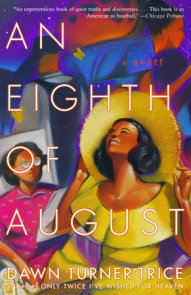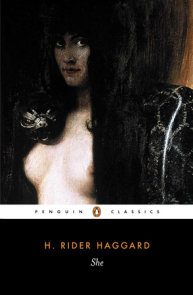READERS GUIDE
"Intimate, smart, powerful. . . . As memorable as The Reader. . . . Dazzling." —The Washington Post Book WorldThe questions, discussion topics, and author biography in this guide are intended to enhance your group’s discussion of Bernhard Schlink’s new collection of stories, Flights of Love.
Introduction
These tales weave around the idea of love—love to seek and love to flee; love as desire, as guilt, as confusion or self-betrayal; love as habit, as affair, and as life-changing rebellion. With remarkable deftness, intelligence and sensitivity, Schlink exposes the dark places of his characters’ hearts and minds as he follows them from the Berlin Wall to the foggy Oregon coast, from Park Avenue to Central America. As his many fans know from The Reader, Schlink’s power as a storyteller resides in his cool compassion and in the moral intelligence that he wields like a laser to penetrate human motives and behavior. Here his subject is not history but the heart itself, and in Flights of Love we find an assured and unforgettable view of love and its myriad difficulties.Questions and Topics for Discussion
1. “Girl with Lizard”
• What gets in the way of the narrator’s emotional life? What is the effect of his parents’ relationship upon his own relationships with women? Is it surprising to learn that his own conception was the result of the rape of his mother by his father? Why is the mother so assiduous in defending the husband she didn’t love or respect? What is the nature of the mother’s moral failure?
• How does the narrator’s obsession with the painting link him irrevocably to his parents, and particularly to the crimes of his father? Toward the end of the story the narrator realizes, “just as had been the case at home, the painting was a treasure, a mystery, a window onto beauty and freedom, and at the same time a commanding, controlling power to whom sacrifices would have to be made” [p. 51]. Why does he burn the painting? Why does Schlink include the revelation that the painting the boy and his father loved was a façade, a concealing device?
2. “A Little Fling”
• What is the relationship between the wife’s betrayal of her husband—seducing their good friend—and the husband’s betrayal of his wife—giving information to the Stasi, the East German secret police? Is one betrayal ethically more acceptable than the other?
• Why does Paula make love to the narrator? Despite the upheaval caused by Sven’s ill-judged desire to protect his wife and child, is his marriage still quite stable? To what degree has the narrator been, all along, more naive than either of his friends? How does this story expose the contamination of intimate relationships by the culture of state-sponsored spying?
3. “The Other Man”
• What was the nature of the relationship between Lisa and Rolf? Why might Lisa have been attracted to him?
• Why is the daughter’s angry evaluation of her father’s habitual self-absorption necessary for the reader’s understanding of his marriage? Is the narrator, newly retired from his work, driven to such lengths in his pursuit of “the other man” mainly by revenge, jealousy, curiosity, or merely idleness?
• Is Rolf merely a con-man, a showoff, a loser? What are the most striking differences between his character and that of the narrator? Why does the narrator decide not to humiliate Rolf at the dinner party? What does the narrator ultimately learn about Rolf, and about himself?
4. “Sugar Peas”
• How does the title, taken from a poem by Heinrich Heine (see p. 162) relate to the story as a whole? How does it relate particularly to the story’s ending, in which the three women each take what they want from Thomas in return for taking care of him?
• We are told, as he successfully balances his relationships with three different women, Thomas “loved the high of a juggler who keeps adding more and more rings to his act” [p. 160]. Thomas is successful in love, in his professional life, in his creative life. To what degree is his strong ego the key to his success in all aspects of his life? Is his self-satisfaction well-founded, or is he merely deluding himself? Which elements make this story so effective as a portrait of a narcissistic man?
• Why does Thomas take on the disguise of a monk? What is the symbolic meaning of the monk’s robe for him? Is there a peculiar sort of justice in Thomas’s accident, his resulting paralysis, and the quiet triumph of the three women? What is comic about the story, and particularly about the ending?
5. “The Circumcision”
• What is inherent in Uncle Aaron’s question to Andi, “What did your father do in the war?” [p. 198] How accurate is Andi’s thought that once Sarah’s Jewish family knows he’s German, “all else is irrelevant” [p. 201]? Why is their relationship more difficult for him than it is for her?
• Is it strange that Andi thinks he can be circumcised without religious ritual and without becoming a Jew? What does his circumcision mean to him? Why does Sarah react as she does, and why is Andi so unhappy with her reaction? Why does the story end as it does? Does the story’s ending imply that the division between Sarah and Andi had been irreparable?
6. “The Son”
• What is the political situation that is the story’s framework? Why is it significant that this is the first time the narrator has ever done anything risky in the course of his career as a professor of international law?
• The narrator is ashamed of the passivity with which he has conducted his life. How is this related to his preoccupation with his son and his grief over his failings as a father? How is the political plot related to the domestic one? Is the ending ironic? Does it seem random? Or fated?
7. “The Woman at the Gas Station”
• Early in the story, the narrator notes that he worries that his dream of the woman at the gas station “betrayed something about him” [p. 283]. In what ways might the reader interpret this dream (or fantasy), and what does it betray about the narrator?
• Is the narrator courageous in leaving his wife in the effort to find something that has been missing in his life? What does the story’s ending imply? Are we to assume that he’ll return to the woman at the gas station or not?
8. For discussion of Flights of Love
• In “The Woman at the Gas Station,” the narrator thinks, “Doesn’t falling in love presume that you don’t know the other person, that he or she still has blank spaces onto which you can project your own desires . . . is there love without projection?” [pp. 289–90] Do other stories also express this deep skepticism about the reality of love? Many of these stories revolve around the elemental yearnings of their main characters—yearnings that usually remain unfulfilled. Does Schlink imply that human desire and fulfillment are incompatible?
• All seven of the stories in this collection are written from the male point of view. What does Schlink reveal about the hidden territories of the male psyche?
• Two of the collection’s most powerful stories deal with Jewish questions. If you have read The Reader, how does the legacy of the Nazi past interfere in similar ways with the life of the central character in “Girl with Lizard” and “The Circumcision”?




















